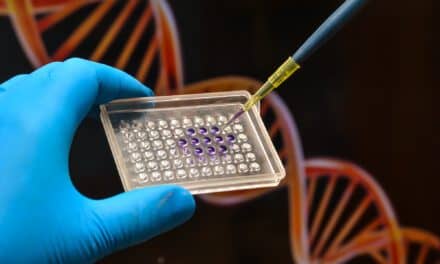Med BioGene Inc announced the publication of a study detailing the development and validation of the 15-gene signature used by LungExpress Dx entitled "Prognostic and Predictive Gene Signature for Adjuvant Chemotherapy in Resected Non-Small-Cell Lung Cancer".
The study was published online ahead of print in the prominent Journal of Clinical Oncology with an accompanying editorial.
LungExpess Dx is a genomic test under development to improve upon current staging by identifying those patients with early-stage non-small-cell lung cancer, who, following surgical removal of their tumor, are at a higher and lower risk of mortality. In the now published study of patient tumor specimens from the National Cancer Institute of Canada Clinical Trials Group JBR.10 trial, patients classified by the 15-gene signature as higher risk significantly benefited from adjuvant chemotherapy, and those classified as lower risk did not benefit, and may have experienced a detrimental effect, from adjuvant chemotherapy.
"We believe that the results described in the Journal of Clinical Oncology paper, along with the results of a subsequent validation study presented in January of 2010 at the joint meeting of the American Association for Cancer Research and International Association for the Study of Lung Cancer, establish that the use of LungExpress Dx will result in better-informed and personalized treatment decisions and improve the selection of patients who may benefit from adjuvant chemotherapy," stated Erinn B. Broshko, Chief Executive Officer of MBI.
Drs Yang Xie and John D. Minna of the Hamon Center for Therapeutic Oncology Research and Simmons Cancer Center, University of Texas Southwestern Medical Center commented in the accompanying editorial that ". . . the tumor biomarker information [from the 15-gene signature] benefited patients in several ways: for patients whose tumors showed a good prognosis, it not only suggested that the patients did not need ACT [adjuvant chemotherapy], but that it might in fact be harmful. For patients with tumors with poor prognoses, the tumor biomarker information suggested that they needed additional therapy, and that they were likely to gain survival benefit from ACT. Thus, ACT would be worth the treatment toxicity for these patients."
Source: Med BioGene


